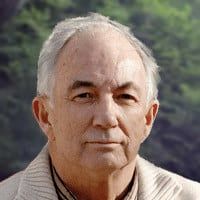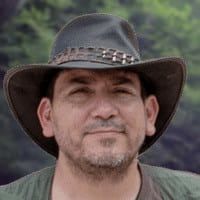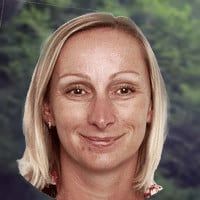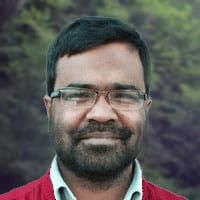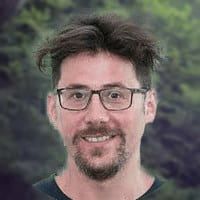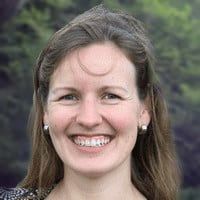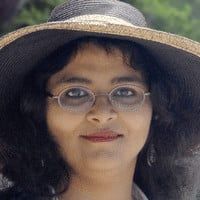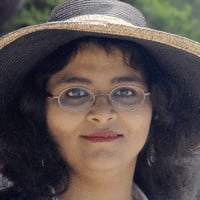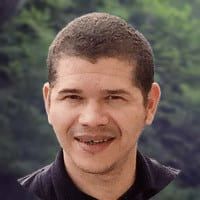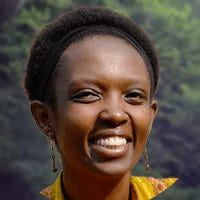Gordon McBean

Canadian climatologist who serves as chairman of the board of trustees of the Canadian Foundation for Climate and Atmospheric Sciences. He is a professor at the University of Western Ontario and Chair for Policy in the Institute for Catastrophic Loss Reduction. Previously he was the Assistant Deputy Minister of Meteorological Service of Canada.
In addition to his involvement with the Canadian Foundation for Climate and Atmospheric Sciences, McBean is a member of the U.S. National Academy of Sciences partnerships committee and since 2014 president of the International Council for Science (ICSU) (before 2014 member of the environment advisory committee). He also acts as a mentor for the Loran Scholars program.
In 1995, McBean gave a speech to the World Meteorological Organization on global warming.
In 2006, McBean, with Andrew Weaver and Ken Denman, authored an open letter, signed by 90 climate scientists, to Prime Minister Stephen Harper calling for an effective national climate change strategy.
The letter was a response to an earlier open letter to Harper from 60 scientists (19 Canadians) arguing against the Kyoto accord and questioning its scientific basis.
to Gordon Mcbean
Watch our video with a fascinating climatologist from Canada. Gordon McBean is professor emeritus, and since 2014 has been the president of the International Council for Science, chairman of the board of trustees of the Canadian Foundation for Climate and Atmospheric Sciences, a member of the U.S. National Academy of Sciences Partnerships Committee, and he also acts as a mentor for the Loran Scholars’ programme.
We met him at the annual meeting of the Global Young Academy a couple of months ago. When he was a young boy, he saw a tiny moving spot in the sky. It was the first artificial object in space – the Sputnik – and it was this experience that made him curious about science and discoveries.
In this video, Professor Gordon McBean talks about climate change, collaboration among researchers, and of course, his ultimate dream.

Gordon: I’m Gordon McBean and I’m an Environmental Scientist from Canada and I work as President of the International Council for Science and Global Issues of Science and Society.
Nerina: What was the 10-year old Gordon like?
Gordon: When I was 10-years old I’m not sure I was thinking about things because it’s a long time ago I’d have to say. I will not admit how old I really am, but I think when I was 10-years old I was fascinated by issues of history and society and actually Geography of the idea of maps and being able to see things and I was very much encouraged by my parents. My father had always wanted to go to university but he never had the chance to. He grew up on a farm and it was his job to work on the farm, but he wanted his sons to go to university. So we had a family environment that encouraged us.
When I was 10 years old and not quite sure what I was thinking but actually only a few years after I was 10 years old – I think I would have been 13. I watched and looked to the skies. Standing on my front porch with my mom, dad, and my two brothers and we looked at the sky and there was a dot of light going through the sky, up there, way up there. It was Sputnik the first time any society had been able to put in space a satellite. A human instrument going up and around the world and it fascinated me. I will always remember that and rather incidentally the reason why Sputnik went up in 1957 I have discovered years later was because it was the International Council for Science organized the International Geophysical year and basically challenged the science community globally who can be the first one to put it there and the Russians won in a sense. But more importantly inspired a lot of people and I think as I said had a very positive influence on me as an example of how scientific groups working together. I didn’t know quite how it was done back then but they put it up there. That’s going around the world like the moon does. Not quite as far up but nonetheless and that I will always remember.
Nerina: How did you become a scientist?
Gordon: I was not quite sure when I was young what I really wanted to be. I studied history, science, and things but as I went to university the sciences, the physics and the chemistry and mathematics kind of intrigued me and I went into that area. Then evolved into studying and applying that information to issues like climate change, weather and that kind of thing. So my Science background evolved more through let’s say exploring different opportunities, possibilities, the way you could do things. So that’s why I became the scientist that I have become.
Nerina: You gave a speech about global warming in 1995, more than 20 years ago. What do you think has changed in the last 20 years?
Gordon: Global warming is an issue that actually from the science community really goes back many decades. In fact, the first paper written on it was written in 1824 by a French mathematician Fourier. But as a science issue that brought the government’s attention started really in the 1980s with the International Council for Science and other organizations convening groups of scientists to say, “Climate is already changing, we should become concerned about it.”
At that time I chaired the World Climate Research Programs International Scientific Committee. So I got involved in these things and help set up the Intergovernmental Panel on Climate Change and these kinds of things. But in 1995, we put out the first statement in the Intergovernmental Panel on Climate Change that said, “The balance of evidence suggests a discernible human influence on the climate system.” The idea was to say that it’s there but we’re not totally sure of how and which way.
Over the years since then, more than 20 years now there has been an evolution. First of all of our climate system, it is getting warmer. 2014 was the warmest year on record at that time to ’15 beat it out, 2016 beat it out again. So we’ve had three successive warmest years on record from the time of humans measuring these things.
We also have seen a progression in the science to better understand how the physical, chemical, biological and other processes in the climate system are working in a way that we can actually say yes, that kind of change could not have just been happening by chance. It’s happening directly related to the amount of human-caused carbon dioxide and other greenhouse gases in the atmosphere. So the situation has changed dramatically over the last 20 years from a very likely but not it’s a firmly deduced decision to one that where we have to take action.
Nerina: How do you think we can manage it?
Gordon: The climate change situation I think is very, very serious and we need to first of all as scientists explain it better to societies and understand as I said at the presentation I actually made to the Canadian cabinet some years ago. When I was challenged, “Why would we do this?” And I said, “Do you have children and grandchildren? I do because it’s our children and grandchildren which will see the real negative impacts of climate change.”
So, first of all, we have to use the science; the very important and very stable solid base of science that we have to convince the public, convince the policymakers that the issue is something we need to address. By somewhat appealing to them in a more political way that scientists are used to doing and then work with the communities of engineers, the stakeholders, the municipalities, governments at all levels to find the ways of both reducing our emissions so that we don’t have runaway greenhouse gas warming by the end of the century.
But at the same time, we have to recognize that because of the way the climate system works we have to adapt to the fact that over the next 20, 30, 40 years we have already put in place a momentum that will cause the climate to change in ways we need to adapt to it. That means changing the way we build homes, roads, way we use water, worrying about flooding zones and things.
So there’s a number of societal things and that’s where we really also have to deal with the issues of international social issues. Justices as we call them in international and intergenerational equity and ethics that is what I call it. That it’s largely a problem created by the industrialized world. It’s now what we put in last year. It’s what we put in the last hundred years into the atmosphere. That means it’s not just because China did the biggest emissions last year they are the worst. There are not doing well but they are actually addressing the problem much more than certain people seem to think they are and I think we should build with these groups of people to find ways and helping people in developing countries who don’t have the resources, who don’t have the knowledge, the technologies, etc. to give them the assistance to help them adapt, change their ways so they don’t become 40 years from now the developed world of the last 20 years, but instead a different kind of society that is positive and beneficial for all.
Nerina: There are still scientists who deny that climate change is happening or that it is happening because of human impact. How important is the collaboration of the scientific community on this issue?
Gordon: Yeah. The climate change issue because of its economic importance to certain sectors of our society is one for which there are reasons that certain scientists will speak out in and let’s say cast doubt on that the climate really is changing. I’ve become involved in this much more than I perhaps thought I would’ve decades ago and because I think it’s important. It’s essential that the scientific community work together to communicate the science information we know and occasionally have to be openly critical of certain scientists who claim to be climate scientists. Most of them, in reality, are not highly credential scientists but we have to work together as a community.
One of the things we need to do is learn how to better communicate. We need to learn how to say convey the messages in a way that people can understand it. There’s a rather ironic story. When I was a University of British Columbia Professor in the 80s and 90s I volunteered to a program called the Scientists in the Schools Program. I would go and sit on the floor with kids in grade four, five and six. Whichever the teacher wanted and discuss climate change or ozone depletion or whatever issue, but often climate change, and explain it in a way that they could understand it in their enthusiasm. But give them the kind of things that they could see and understand.
And then later when I became an assistant Deputy Minister I was briefing one of my ministers. And after I briefed the minister the other assistant deputy minister said, “Wow Gordon. How did you learn to brief ministers? You’re just new in the job.” I said, “Whatever you do don’t tell the minister that I did what I did when I taught to kids in grade four, five and six.” You learn to weigh, to explain things in a way that can be understood by… because very few ministers in any government have a science background.
Nerina: You’re are attending the Global Young Academy annual meeting. How important is your collaboration?
Gordon: Well, I think we need to understand as part of this process of learning how to communicate by interacting with scientists of let’s say different backgrounds, different disciplines, different geographies, racial, religion, other backgrounds. Because that’s really important to understand the dimensions of a global issue. In an organization like the Global Young Academy and the International Council for Science in an older general way are organizations that bring together the science community from across the globe that we can learn from each other. We can learn amazing amounts just being here for two or three days now and talking over breakfast and dinner with young scientists. I learned well gosh I didn’t know that.
So organizations like the Global Young Academy can develop that very positive interaction and learning process among younger scientists and they can also because they represent in a sense the next generation. They are part of that, children, grandchildren kind of you sense certainly children and in a way that hopefully will then convey that importance of addressing environmental issues: climate change but others, many others, many others it’s not just climate and also more importantly generally building our governmental policies based on the very best science and the very broad definition of that word. I define science to include psychology, sociology, cultural issues, linguistic issues, as well as maths, physics, and chemistry. Getting those kinds of issues brought together in a way that people in the political world and hopefully the general public overall. Because politicians listen to the public and in most countries, their main objective is to get re-elected and they will get re-elected if they fill they are addressing the issues that the public wants. So we need to work together and the young scientists of GYA, Global Young Academy are very important as part of that process of conveying the importance of these science issues. We have to emphasize the value of evidence-based policy for societies and the fact that there are often are solutions. We just have to find them, work together to implement them, develop them, enhance them as we go along and learn from things.
So I think the Global Young Academy can play a role in clearly helping with doing good science, developing young people to be motivated to do the kind of science we need. Not being motivated by the number of dollars they are going to make but motivated by the societal benefits of the outputs, the outcomes of their programs and research. But if we can then work together Global Young Academy, global old academician can work together in ways that can make a big difference for all.
Nerina: What is the most important lesson that you’ve learned from your research?
Gordon: Well, I think first of all while I have been studying science for a long time and then I got involved in policy issues quite a while ago. So I’ve learned how to, how we need to as a scientific community work together with the policymakers in a way that doesn’t allow them to overwhelm us, but allows us to understand how they see issues. So we can get the support we need in order to undertake the very best science and we need to work in teams. Some people’s expertise is not in communications. Their expertise is in solving that physics problem and that’s not to be in any way negative, but we need to have them working with teams with those who have communication skills, certain kinds of outreach skills in a way that the team together can make a big difference.
Nerina: What motivates you?
Gordon: I do have children and grandchildren as I’ve said and I think it’s so important that we as scientists, not just walk away and say, “Okay, I’ve had enough. I’m done for that issue.” I feel motivated and I get a large amount of personal satisfaction out of working with groups of people around the world. I find it very inspiring in a way to meet with people from different countries and learn about them and learn about how their society functions and realize that my background is different, not worse or better, just different. But between us we can bring those things together make us overall better and to me that’s a kind of reward for life.
Nerina: Do you have a dream?
Nerina: When I look to the future, looking back I think all these things have happened and I look to the future and hope that there will be an evolution in a way that some of the right wing tendencies in society that have been happening recently are not replicated. That they become short-term aberrations, disturbances that happened but let’s look to the future and hope there is a more general sense of a global community working together that people understand that we actually prosper better when we work together than when we counter each other. That we should encourage the interplay or the interaction that working together with different disciplines and more importantly different genders, different groups of racial, religious whatever backgrounds that those shouldn’t be the factors. It should be a common good kind of approach and I’m hoping, I’m relatively optimistic that if we keep working together as the science community and join in with other groups who are also thinking the same way that collectively we can make a very positive difference.
Nerina: Thank you so much, Gordon.
Gordon: Thank you.
Canadian climatologist who serves as chairman of the board of trustees of the Canadian Foundation for Climate and Atmospheric Sciences. He is a professor at the University of Western Ontario and Chair for Policy in the Institute for Catastrophic Loss Reduction. Previously he was the Assistant Deputy Minister of Meteorological Service of Canada.
In addition to his involvement with the Canadian Foundation for Climate and Atmospheric Sciences, McBean is a member of the U.S. National Academy of Sciences partnerships committee and since 2014 president of the International Council for Science (ICSU) (before 2014 member of the environment advisory committee). He also acts as a mentor for the Loran Scholars program.
In 1995, McBean gave a speech to the World Meteorological Organization on global warming.
In 2006, McBean, with Andrew Weaver and Ken Denman, authored an open letter, signed by 90 climate scientists, to Prime Minister Stephen Harper calling for an effective national climate change strategy.
The letter was a response to an earlier open letter to Harper from 60 scientists (19 Canadians) arguing against the Kyoto accord and questioning its scientific basis.
to Gordon Mcbean
